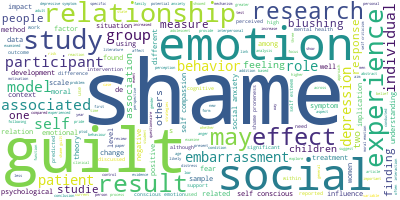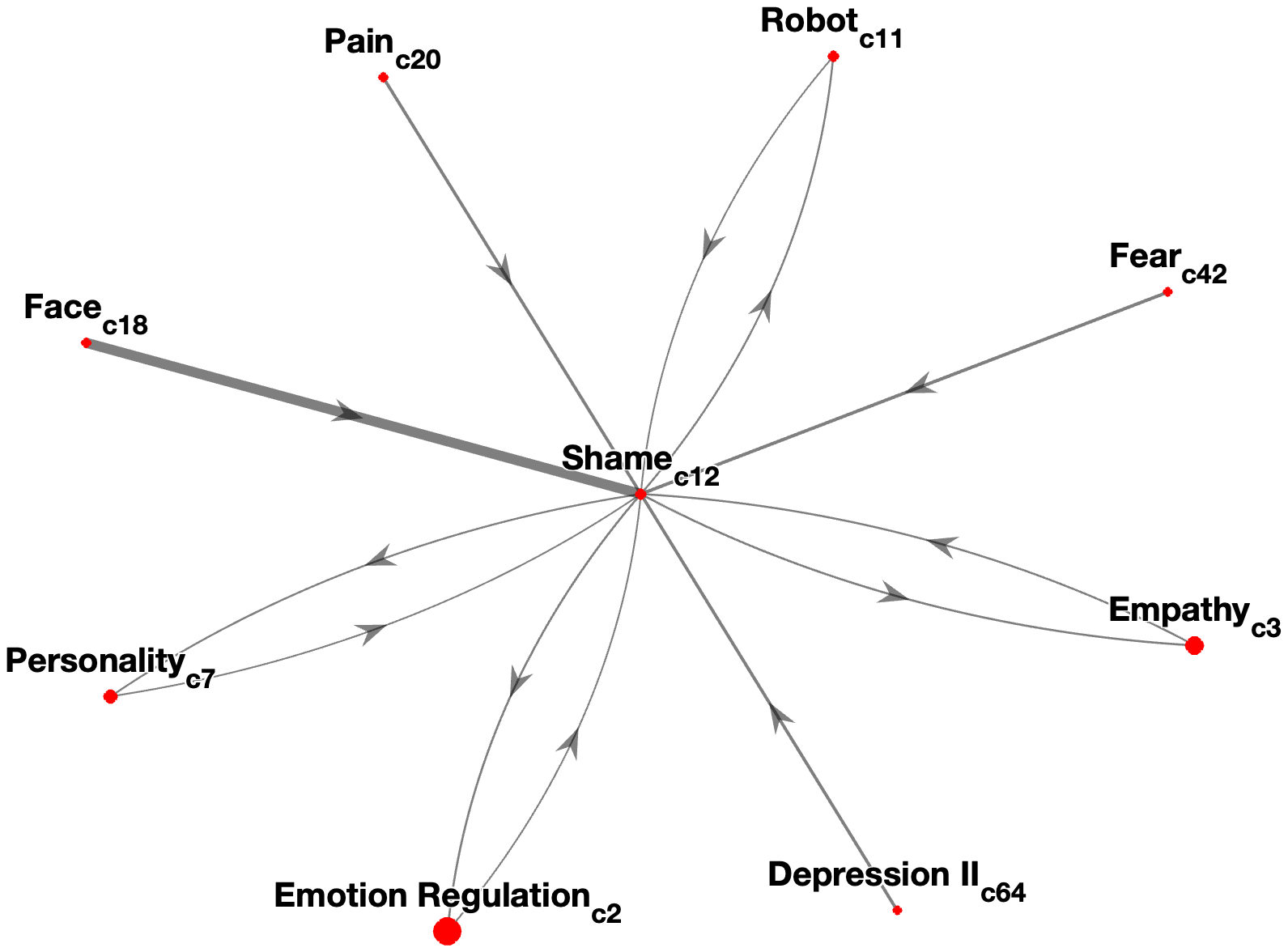Community 12: Shame
Key words: Shame, guilt, embarrassment, social

Interconnectedness

Missed connections
Community pairs with high citation-based distance but low semantic distance
From |
To |
Diff. Score |
Citation-Based Distance (Z) |
Semantic Distance (Z) |
|---|---|---|---|---|
|
1.85 |
0.77 |
-1.08 | ||
|
1.73 |
0.87 |
-0.86 | ||
|
2.58 |
1.29 |
-1.29 | ||
|
2.48 |
1.29 |
-1.19 | ||
|
2.23 |
1.13 |
-1.1 |
Central articles
-
Guilt: an interpersonal approach.
R. Baumeister, A. Stillwell, T. Heatherton. 1994. Psychological bulletin
-
Moral emotions and moral behavior.
J. Tangney, J. Stuewig, Debra J. Mashek. 2007. Annual review of psychology
-
Shame, guilt, and depressive symptoms: a meta-analytic review.
Sangmoon Kim, R. Thibodeau, R. S. Jorgensen. 2011. Psychological bulletin
-
Self-Conscious Emotions
M. Lewis. 1995.
-
Participant descriptions of guilt and shame
F. W. Wicker, Glen C. Payne, R. D. Morgan. 1983.
-
Moral affect: the good, the bad, and the ugly.
J. Tangney. 1991. Journal of personality and social psychology
-
Shamed into anger? The relation of shame and guilt to anger and self-reported aggression.
J. Tangney, P. Wagner, C. Fletcher, R. Gramzow. 1992. Journal of personality and social psychology
-
Are shame, guilt, and embarrassment distinct emotions?
J. Tangney, R. S. Miller, L. Flicker, D. H. Barlow. 1996. Journal of personality and social psychology
-
Relation of shame and guilt to constructive versus destructive responses to anger across the lifespan.
J. Tangney, P. Wagner, D. Hill-Barlow, D. Marschall, R. Gramzow. 1996. Journal of personality and social psychology
-
Compassionate mind training for people with high shame and self‐criticism: overview and pilot study of a group therapy approach
P. Gilbert, S. Procter. 2006.